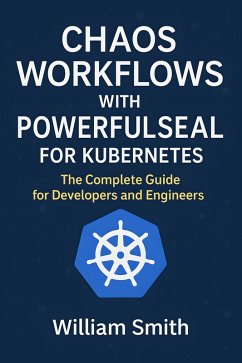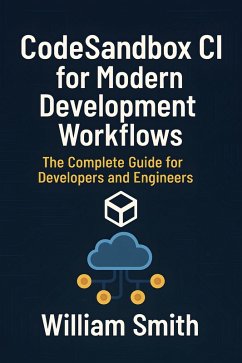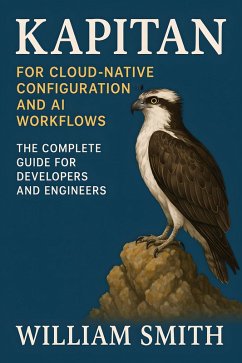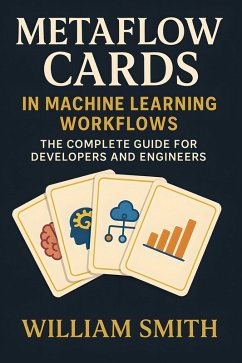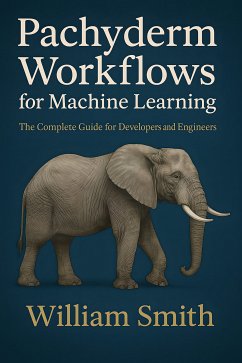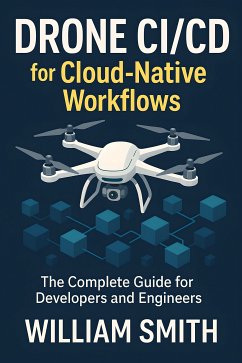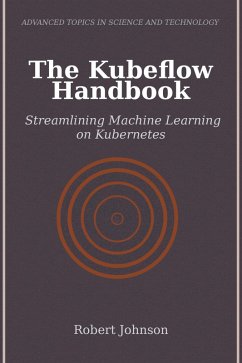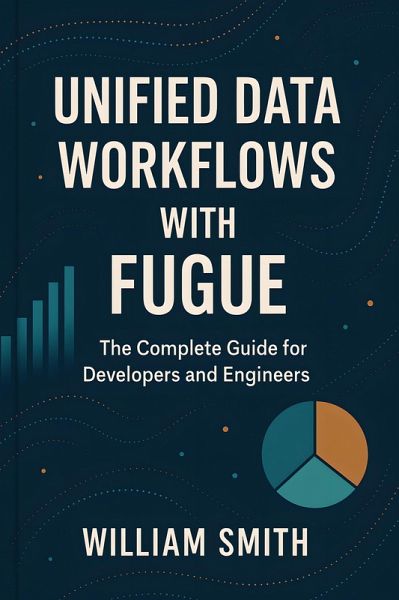
Unified Data Workflows with Fugue (eBook, ePUB)
The Complete Guide for Developers and Engineers

PAYBACK Punkte
0 °P sammeln!
"Unified Data Workflows with Fugue" "Unified Data Workflows with Fugue" is a comprehensive guide that addresses the evolving landscape of data engineering, where heterogeneous compute engines, rapid cloud adoption, and growing regulatory demands make workflow unification both a challenge and a necessity. The book begins by tracing the historical transition from legacy ETL processes to the era of unified data workflows, articulating the fundamental need for framework-agnostic design to promote reusability, modularity, and maintainability. Through detailed comparisons of leading distributed fram...
"Unified Data Workflows with Fugue" "Unified Data Workflows with Fugue" is a comprehensive guide that addresses the evolving landscape of data engineering, where heterogeneous compute engines, rapid cloud adoption, and growing regulatory demands make workflow unification both a challenge and a necessity. The book begins by tracing the historical transition from legacy ETL processes to the era of unified data workflows, articulating the fundamental need for framework-agnostic design to promote reusability, modularity, and maintainability. Through detailed comparisons of leading distributed frameworks-such as Spark, Dask, and Pandas-the opening chapters position Fugue as a pioneering solution for advanced data practitioners seeking to abstract business logic from underlying compute environments. The core architecture of Fugue is meticulously unpacked, guiding readers through its decoupled execution model, universal data representations, extensible plug-in system, and robust error management strategies. Successive chapters provide hands-on expertise in programming with Fugue's declarative and programmatic APIs, demonstrating how unified workflows can be built using both intuitive SQL-like syntax and powerful Python abstractions. Special attention is paid to practical concerns, including cross-backend portability, performance optimization, advanced workflow orchestration, and seamless integration with popular tools like Airflow, Prefect, and Kubernetes. Beyond technical execution, the book delivers actionable methodologies for workflow reuse, testing, versioning, CI/CD, and compliance within regulated industries. Advanced sections cover topics such as large-scale streaming, MLOps, high-availability strategies, data governance, and confidential computing. Real-world case studies and expert heuristics further cement Fugue's value proposition, while a forward-looking finale situates Fugue in the modern data stack and explores emerging trends in AI-enabled engineering. Whether you are modernizing enterprise ETL, architecting scalable analytics, or building the next generation of declarative data platforms, this book offers the rigorous, holistic perspective needed to succeed with unified data workflows.
Dieser Download kann aus rechtlichen Gründen nur mit Rechnungsadresse in A, B, BG, CY, CZ, D, DK, EW, E, FIN, F, GR, H, IRL, I, LT, L, LR, M, NL, PL, P, R, S, SLO, SK ausgeliefert werden.




